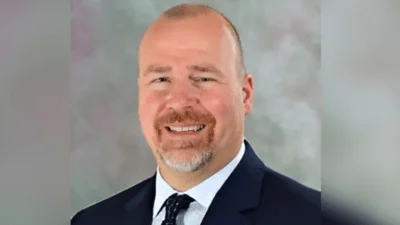Safari Club International requests hunting content censorship removal, highlighting its ability to raises awareness on preservation and wildlife management, among other sustainability efforts. | Facebook/safariclubintl
Safari Club International requests hunting content censorship removal, highlighting its ability to raises awareness on preservation and wildlife management, among other sustainability efforts. | Facebook/safariclubintl
After The Hunting Consortium was targeted with a massive account ban last year on Facebook, Safari Club International submitted a letter to the social media platform’s CEO, Mark Zuckerburg requesting the removal of censorship on the company’s hunting content, as well as content belonging to other hunting organizations. The request was submitted alongside a petition signed by many Wisconsin hunters.
"How is a still photo of a hunter standing next to an animal more violent than a hockey fight or UFC clip?" Daily Malarkey, a daily email newsletter covering news, media, politics and pop-culture, writes. The newsletter describes the main issue, saying, “Photos are being blurred-out, removed and stamped as 'sensitive content' for violating 'community standards.' Accounts are being locked and terminated with little advance warning or justification.”
The letter details the ways recent Facebook and Instagram bans and posts removals have recently impacted The Hunting Consortium. The harm inflicted by the censorship of hunting content is also highlighted in a hunting-related newsletter published by The Safari Club, through which additional testimonies are shared to raise awareness of the ban.
“We've heard countless stories from hunters, guides, outfitters and more, of their accounts being locked or even taken down entirely with little to no warning or justification – potentially impacting their business and livelihoods,” the Safari Club writes.
The organization argues that the posts should be allowed to educate social media users about the important role hunting plays in conservation, wildlife management and sustainable use, adding that the activity contributes billions of dollars to conservation funding, improving critical wildlife habitat and supporting local economies. It also argues that innocent hunting posts are also being removed.
The outlet also gives hunters a way to form a global connection with others around the world, display the source of food hunting provides and raise awareness on related issues such as the recent attempt to ban bear hunting in California, and the closure of 60 million acres of federal land, Outdoor Life reports. The Safari Club petition is supported by Ross Miltimore of Nekoosa, Edward Strahs of Onalaska, Harry Peters of Twin Lakes and other Wisconsin residents.
To support the efforts of the letter and the petition, a recent Outdoor Life article featured a post from Nosler Inc. stating that “Instagram’s latest update automatically adds a filter to limit you from seeing content that they think might be upsetting or offensive (i.e. everything hunting and shooting related).” The article adds that “If you’re a hunter and you’re active on social media, you’re almost certain to know someone who has had posts flagged, removed or even been locked out of their pages. Often, the posts are completely benign, but get 'flagged' as being harmful content in one form or another and removed.”
Facebook's Community Standards on objectionable content under violent and graphic content disregards the potential pros of graphic hunting content, stating that imagery of animals will be removed if it includes "humans killing animals if there is no explicit manufacturing, hunting, food consumption, processing or preparation context" or if that imagery shows "showing wounds or cuts that render visible innards or dismemberment if there is no explicit manufacturing, hunting, taxidermy, medical treatment, rescue or food consumption, preparation or processing context, or the animal is already skinned or with its outer layer fully removed."
According to Safari Club, hunters drive conservation, wildlife management and sustainable use
“We contribute billions to conservation funding, improve critical wildlife habitat and support local economies – yet we are treated like we are the bad guys for participating in a legal, regulated activity that provides immense benefits.”






 Alerts Sign-up
Alerts Sign-up